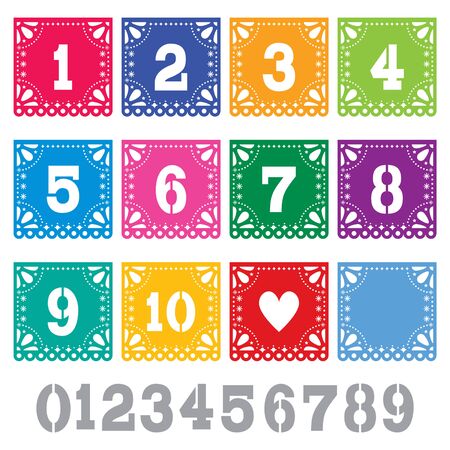Understanding The Lovers: Tarot Symbolism and Modern Relevance
In the vibrant tapestry of American culture, the archetype of The Lovers tarot card has transcended its traditional associations with romance to embody a broader spectrum of meaning. While many immediately think of passionate love or soulmates when encountering this card, its symbolism runs much deeper—touching on themes of choice, alignment, and authentic connection in all areas of life. In contemporary U.S. society, where individualism is celebrated yet meaningful relationships remain central to personal fulfillment, The Lovers card invites us to reflect on how we make decisions from the heart—not just in love, but in friendships, families, careers, and even our relationship with ourselves. This card encourages Americans to seek harmony between their values and actions, reminding us that true connection begins with self-honesty and conscious choice. As we navigate the complexities of modern life—balancing freedom with responsibility, independence with intimacy—The Lovers serves as a guiding light for cultivating deeper bonds and making choices that align with our highest good.
2. Navigating Romantic Relationships in a Changing Culture
In today’s modern U.S., the landscape of romantic relationships is evolving faster than ever before. With shifting social norms, changing expectations, and the influence of technology, Americans are presented with both unique challenges and growth opportunities as they seek connection and love. Dating apps, long-distance communication tools, and greater acceptance of diverse relationship structures have transformed how people meet and build partnerships. Yet, these advancements also bring complexity: individuals must navigate new questions about commitment, exclusivity, and authenticity.
Growth Opportunities in Modern Love
Modern relationships offer Americans the chance to explore deeper self-awareness and personal growth. As cultural conversations encourage emotional vulnerability and open communication, partners can learn to express their needs honestly and work through conflicts with empathy. The following table highlights some key differences between traditional and contemporary dating experiences in the U.S.:
| Aspect | Traditional Dating | Modern Dating |
|---|---|---|
| Communication | Face-to-face, phone calls | Texts, DMs, video calls |
| Relationship Models | Mainly monogamous | Diverse: monogamy, polyamory, open relationships |
| Social Approval | Family-focused | Peer- and self-driven |
The Challenge of Choice
With so many options available, making decisions about who to date—and how to define a relationship—can feel overwhelming. This abundance often leads to “choice paralysis,” where fear of missing out (FOMO) makes it hard to commit or be present. However, this same dynamic empowers individuals to reflect on what they truly want from love, encouraging deeper alignment with personal values and desires.
Cultivating Authentic Connections
The journey through modern romance is ultimately about finding authentic connection amidst uncertainty. For many Americans, this means embracing vulnerability and learning to trust both themselves and their partners. By honoring their own needs while remaining open to growth, people can forge meaningful relationships that reflect the evolving spirit of love in the modern U.S.

3. Making Big Decisions: Heart, Mind, and Social Influences
In the journey of love and relationships, making significant decisions often feels like standing at a crossroad with your heart pulling one way and your mind another. In the modern U.S., this internal tug-of-war is amplified by the unique blend of personal values, gut feelings, and cultural expectations that shape our choices. At the core, many Americans are taught to value independence and authenticity—ideals that encourage listening closely to ones intuition when choosing a partner or committing to a life path. But alongside this personal compass, there are powerful social influences at play. Friends, family, and even the broader media landscape can subtly (or not so subtly) nudge us toward certain milestones: dating by a certain age, getting married, buying a house, having children. These external pressures can sometimes cloud our judgment, making it difficult to separate what we truly want from what we think we’re supposed to want.
The Voice Within: Trusting Your Intuition
Your intuition—the quiet whisper of your soul—often knows what’s best for you long before your rational mind catches up. In American culture, where “following your heart” is celebrated in everything from country songs to Hollywood films, tuning into your inner voice can feel both empowering and scary. It takes courage to trust yourself when everyone else seems to have an opinion about your relationship status or life direction.
Cultural Pressures: The Invisible Hand
Yet, no decision exists in a vacuum. U.S. society places a premium on certain relationship milestones and timelines, creating invisible checklists that many people feel pressured to follow. Whether it’s the expectation to find “the one” or the idea that happiness comes only after hitting certain markers, these cultural narratives can weigh heavily on our hearts and minds.
Balancing Values and Expectations
Ultimately, making big decisions in love requires balancing your deepest values with the reality of social influences. It’s about honoring your authentic desires while being mindful of how outside voices shape your thinking. The Lovers card reminds us that destiny isn’t just something that happens to us—it’s something we co-create by aligning our actions with both our hearts and our higher wisdom.
4. Love Beyond Romance: Friendship, Family, and Community
In the American landscape, where life moves at a dizzying pace and diversity shapes every corner, love often stretches far beyond romantic relationships. While “The Lovers” tarot card traditionally symbolizes passion and partnership, its true message for modern America is the celebration of all forms of deep connection—especially those found in friendship, family, and community.
The Foundation of Non-Romantic Love
Non-romantic love serves as an anchor amid the hustle and bustle of daily life. Whether it’s a friend who listens without judgment, a supportive family that stands by us through thick and thin, or a neighborhood community that feels like home, these bonds foster resilience and belonging. In a country known for its individualism, these connections remind us we are never truly alone on our journeys.
Types of Meaningful Connections
| Connection Type | Key Qualities | Impact on Well-being |
|---|---|---|
| Friendship | Loyalty, empathy, shared experiences | Reduces stress, boosts happiness |
| Family (biological or chosen) | Unconditional support, tradition, roots | Creates stability and identity |
| Community | Inclusivity, collaboration, shared values | Builds safety net and sense of purpose |
Cultivating Connection in a Fast-Paced World
Making time for non-romantic love can be challenging when schedules are packed and digital distractions abound. Yet even small gestures—like sharing a meal with family, checking in on a friend, or volunteering in your local community—can have profound effects. These moments create spaces for vulnerability and trust to flourish.
Diversity as a Source of Richer Bonds
America’s diverse tapestry invites us to form connections across cultures, backgrounds, and perspectives. By embracing different kinds of love, we expand our capacity for empathy and understanding. The Lovers card encourages us to honor all forms of connection as sacred choices that enrich our lives beyond traditional romance.
5. Healing and Destiny: Using Love to Guide Life’s Path
In the landscape of American life, love is more than just a feeling—it’s a powerful force that offers healing from old wounds and inspires hope for new beginnings. When we embrace love, in all its diverse forms, we invite a deeper sense of wholeness into our lives. Whether it’s romantic love, the support of friends, or self-love, these connections act as gentle reminders that we are never truly alone on our journey.
The Power of Emotional Healing
Americans often carry emotional baggage from past relationships or family dynamics. The Lovers archetype encourages us to face these pains with courage and vulnerability. Through open communication, forgiveness, and empathy, individuals can begin to mend their hearts. This healing process is not only personal but also collective, strengthening the fabric of communities across the nation.
Redefining Destiny Through Love
Love empowers people to rewrite their destinies. By making conscious choices rooted in compassion and authenticity, Americans are able to break free from cycles of hurt or fear. This might mean choosing a partner who truly values them, setting healthy boundaries, or pursuing passions that nurture the soul. Each decision made with love becomes a stepping stone toward a brighter future.
Courage to Shape the Future
In a culture that prizes independence yet yearns for connection, embracing love requires bravery. It means daring to trust again after disappointment and believing in the possibility of happiness no matter what has come before. As Americans lean into love—whether through acts of kindness, deep conversations, or mutual support—they chart a path forward filled with purpose and hope.
Ultimately, The Lovers card reminds us that our destinies are shaped by the choices we make about how we give and receive love. In today’s modern U.S., this truth empowers every individual to heal from yesterday and step confidently into tomorrow’s promise.
6. Modern Tools for Modern Love: Communication, Technology, and Self-Care
In today’s fast-paced American society, navigating love and relationships often means embracing a toolkit built for the digital age. While the heart’s longing remains timeless, the ways we connect, communicate, and care for ourselves have evolved dramatically. Let’s explore how modern Americans are using practical strategies and digital resources to nurture meaningful connections that echo the spirit of The Lovers card—choices made with intention, trust, and deep emotional resonance.
Intentional Communication in a Digital World
Healthy relationships thrive on open and honest communication. Americans now leverage technology to maintain closeness despite busy schedules or long distances. Video calls on platforms like FaceTime or Zoom have become lifelines for couples separated by travel or work. Messaging apps such as WhatsApp and iMessage help partners check in throughout the day, offering quick moments of affection or support. These tools enable consistent, intentional dialogue—helping couples express needs, resolve conflicts, and celebrate daily joys even when apart.
Dating Apps: Opportunities and Mindful Choices
For those seeking new relationships, dating apps like Tinder, Bumble, and Hinge have revolutionized how people meet in the U.S. While these platforms can sometimes feel overwhelming, they also empower users to set clear preferences and boundaries. Many Americans approach online dating with self-reflection, using profiles as a way to express values and intentions upfront. Success often comes when individuals balance digital exploration with real-world interactions—moving from swipes to genuine conversations that honor their true selves.
Self-Care: The Foundation of Healthy Love
The Lovers card reminds us that authentic connection begins within. Americans are increasingly prioritizing self-care as an essential part of relationship health. This may include therapy (both individual and couples’ counseling), mindfulness practices like meditation or journaling, or simply making time for solo hobbies that recharge the spirit. Apps such as Headspace or Calm offer accessible mental wellness tools, while online support communities create safe spaces for discussing challenges and growth.
Setting Boundaries and Digital Detoxes
With constant connectivity comes the need for boundaries. Many couples establish “phone-free” zones during meals or date nights to foster deeper presence and intimacy. Others schedule regular digital detoxes—unplugging from devices to reconnect with themselves or each other without distraction. These conscious choices reflect a broader American trend toward balance: harnessing technology’s benefits while protecting sacred space for love to flourish.
Nurturing Relationships in the Modern U.S.
Ultimately, building healthy relationships today means blending timeless values—honesty, empathy, commitment—with modern tools designed for connection and self-awareness. By communicating intentionally, using technology mindfully, and practicing self-care, Americans are crafting love stories that honor both individuality and togetherness—a true embodiment of The Lovers card in the contemporary world.


